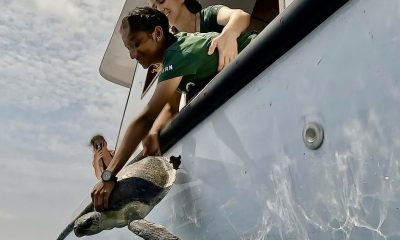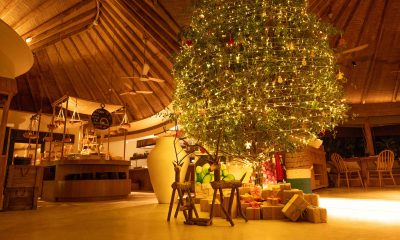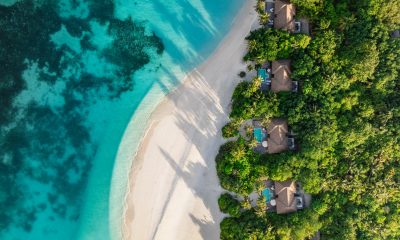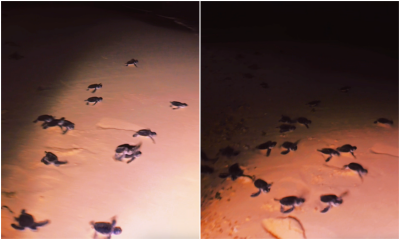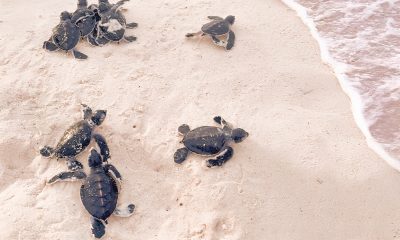Action
Six Senses Laamu marks Turtle Day with 100th Hawksbill identification

Six Senses Laamu has celebrated the World Turtle Day this year with the identification of 100th Hawksbill turtle on the atoll’s reefs.
In July 2016, the resident marine biologists at Six Senses Laamu implemented a new code of conduct on how to sustainably snorkel and dive with turtles, ensuring that every encounter is a positive interaction and that it does not affect the natural behaviour and movements of the turtle. With this in mind, they began compiling a database of turtle sightings from the dive and snorkel sites around the Laamu atoll, via a simple photographic identification process.
The 100th Hawksbill turtle was identified this week and included in the resort’s marine database.
According to Six Senses Laamu, the identification process allows the marine team to closely monitor the population of both Green and Hawksbill turtles in the surrounding waters. Due to key members of the team being both dive and photography enthusiasts there are available sighting records dating back as far as 2013, it said.
“Of the 800+ total sightings, only 240 are of Hawksbills. The most re-sighted Hawksbill is Mia with 20 sightings,” the resort’s announcement read.

Six Senses Laamu said it aims to increase awareness of turtles and conservation measures to protect them and the habitats in which they live. Guests diving or snorkelling on the surrounding reefs are encouraged to take photos of turtles they come across, and if they find a newly spotted turtle, they may get a chance to give it a name, it added.
Hawksbill turtles are located worldwide and are easily distinguished from other sea turtles by their sharp curving beak and serrated edge to the rear of their shell. Like all sea turtles, they spend the first 20 or so years of their life in the open ocean feeding predominantly on jellyfish. Therefore, when they come to live in coral reef habitat, they change their diet and start feeding on sponges, algae, coral, and small crustaceans instead.
Hawksbill turtles play a key role in the coral reef ecosystem. There are few animals that eat the fast-growing sponges due to the toxins in their tissue; therefore they allow coral and other species to colonise and grow in the gaps they create. This maintains diversity throughout the reef ecosystem.
Hawksbill turtles are listed as Critically Endangered in the International Union for Conservation of Nature (IUCN) Red List. This is partly due to their shell being used for thousands of years for decoration purposes, but in the 1900s their population was estimated to drop by 80 percent. As air breathing reptiles, turtles are at great risk of drowning in fishing gear. In addition to this, with jellyfish as their main food source in the open ocean, plastic pollution is a major problem. In the present day, they are protected by the Convention on International Trade in Endangered Species of Wild Fauna and Flora (CITES) but much is still needed to conserve populations.

Six Senses Laamu is the only resort located in the Laamu atoll, which lies in the southern part of the Maldives. Surrounded by the Indian Ocean, the resort prides itself on its commitment to sustainable operations and development as outlined by Agenda 21 and Green Globe Benchmarking.
At Six Senses Laamu, most of the villas and facilities are built overwater. However, beach villas and on-land dining is an option. All villas offer a sense of privacy and seclusion, with an amazing view to the Ocean and Maldivian nature.
Six Senses Laamu offers a wide range of dining options, with cuisines from around the world, a swimming pool with a sunken bar, an ice cream parlour, an overwater wine cellar and a signature Chill bar. Many activities, excursions and options are available for everyone to enjoy, both overwater and underwater, in addition to the Six Senses Spa.
Action
Sun Siyam Olhuveli invests in staff wellbeing with upgraded sports facilities
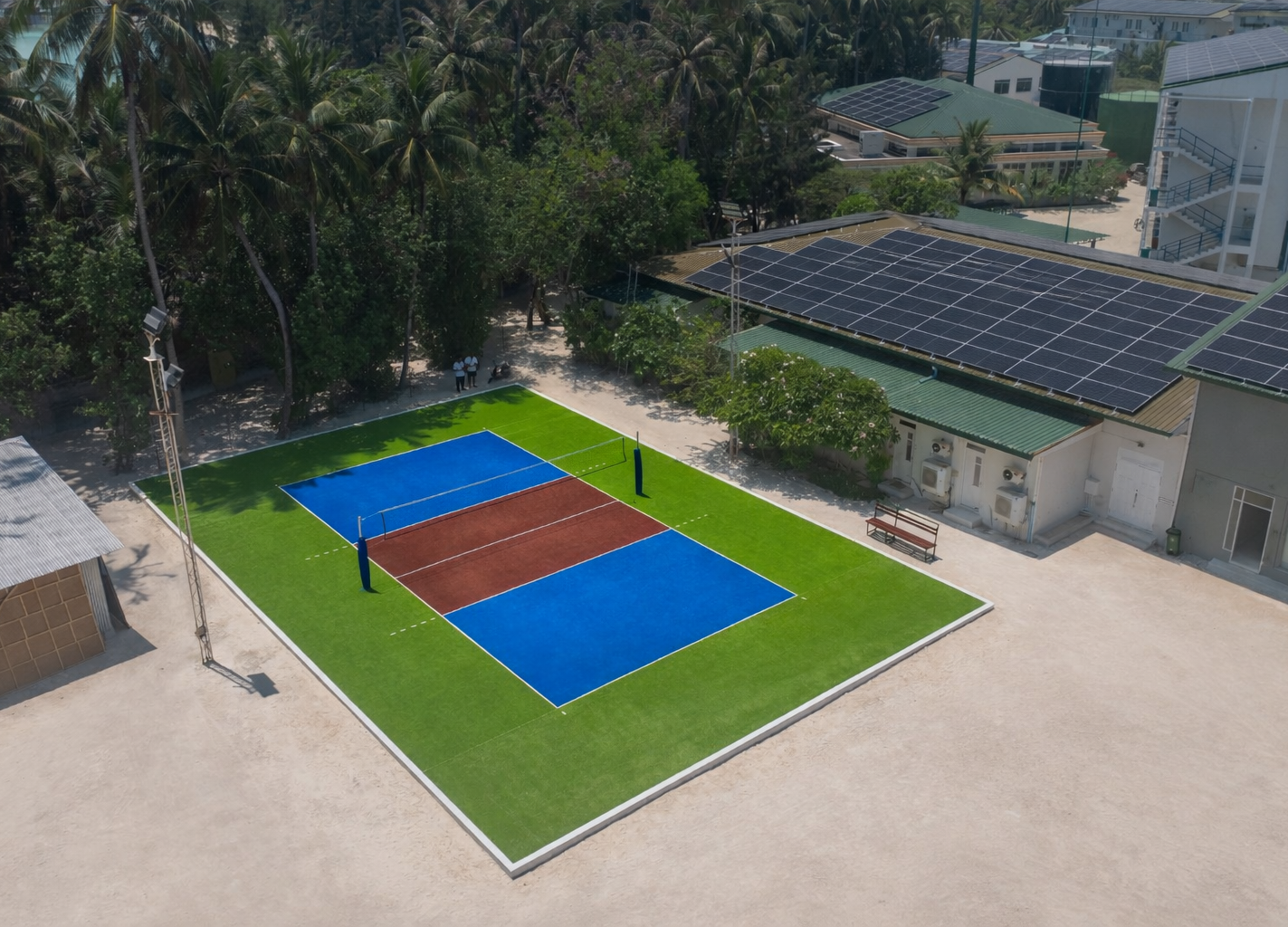
Sun Siyam Olhuveli has unveiled newly upgraded volleyball and futsal grounds for team members, reaffirming its commitment to employee wellbeing while advancing responsible, future-focused operations. The renovated volleyball grounds were officially inaugurated on 14 February, while the upgraded futsal ground opened earlier this year—together creating dedicated spaces for recreation, connection, and healthy competition across the island.
Designed to encourage regular physical activity and camaraderie beyond the workplace, the improved sports facilities represent a thoughtful investment in social infrastructure. They reflect a belief that wellbeing is fundamental to long-term performance, nurturing morale, teamwork, and a strong sense of belonging among team members.
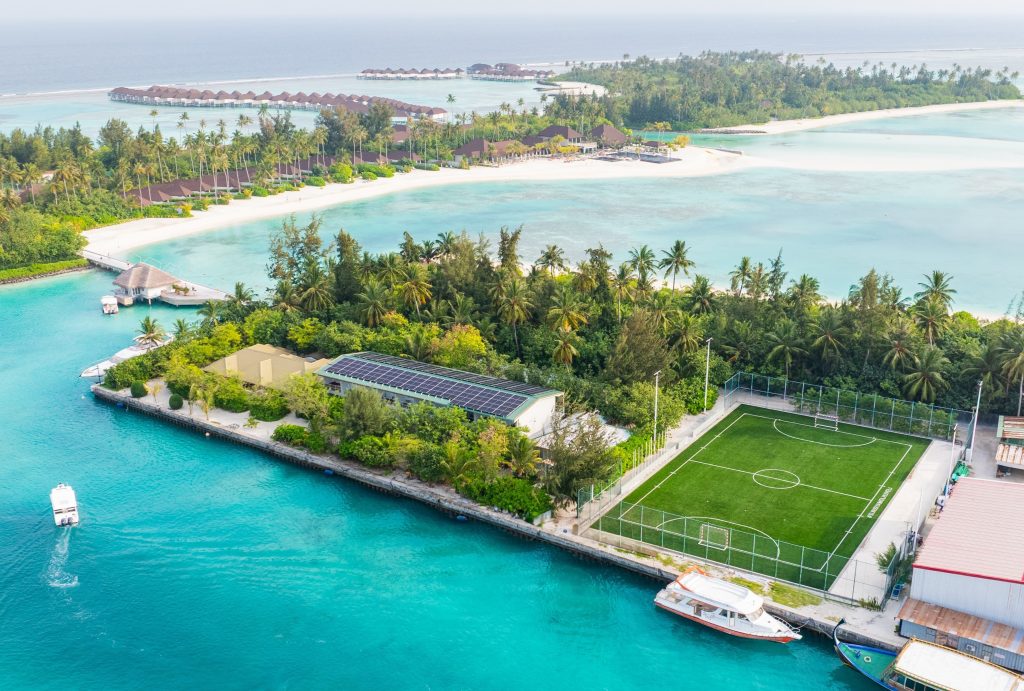
Alongside these developments, the resort has implemented NO BIN DAY every Tuesday, a practical initiative aimed at minimising food waste across operations. By encouraging mindful planning and responsible consumption, the initiative challenges teams to rethink habits around food—transforming sustainability into a shared, everyday discipline.
“Taking care of our people and the environment must go hand in hand. By investing in spaces that support our team’s wellbeing and introducing simple disciplines like NO BIN DAY, we are building a culture where responsibility is lived every day—naturally, collectively, and with purpose,” said Hassan Adil, General Manager of Sun Siyam Olhuveli.
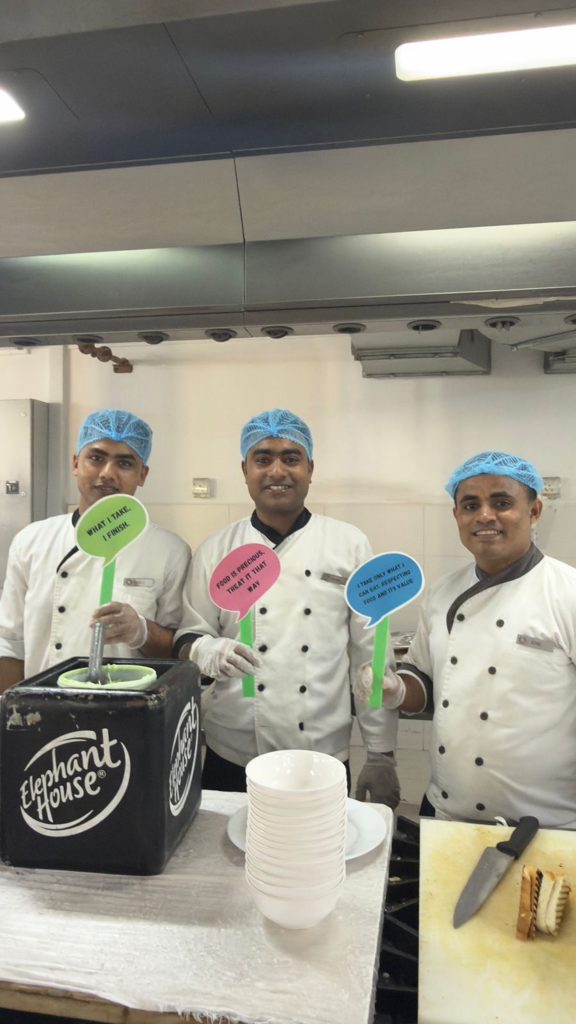
Both initiatives form part of Sun Siyam Care, the group’s corporate social responsibility platform, and align with the Social Infrastructure and Responsible Consumption and Production pillars under the GDS framework. Together, they reflect a people-first approach to sustainability—where everyday actions create lasting impact for teams, operations, and the wider community.
Sun Siyam Care is committed to creating a positive impact for people, communities, and the environment through responsible operations, social investment, and long-term sustainability actions across its destinations in the Maldives and Sri Lanka.
Guests are encouraged to learn more about these initiatives by visiting the Sun Siyam Care website at sunsiyam.com/sun-siyam-care.
Action
Sheraton Maldives Full Moon celebrates sixth anniversary of Reefscapers collaboration
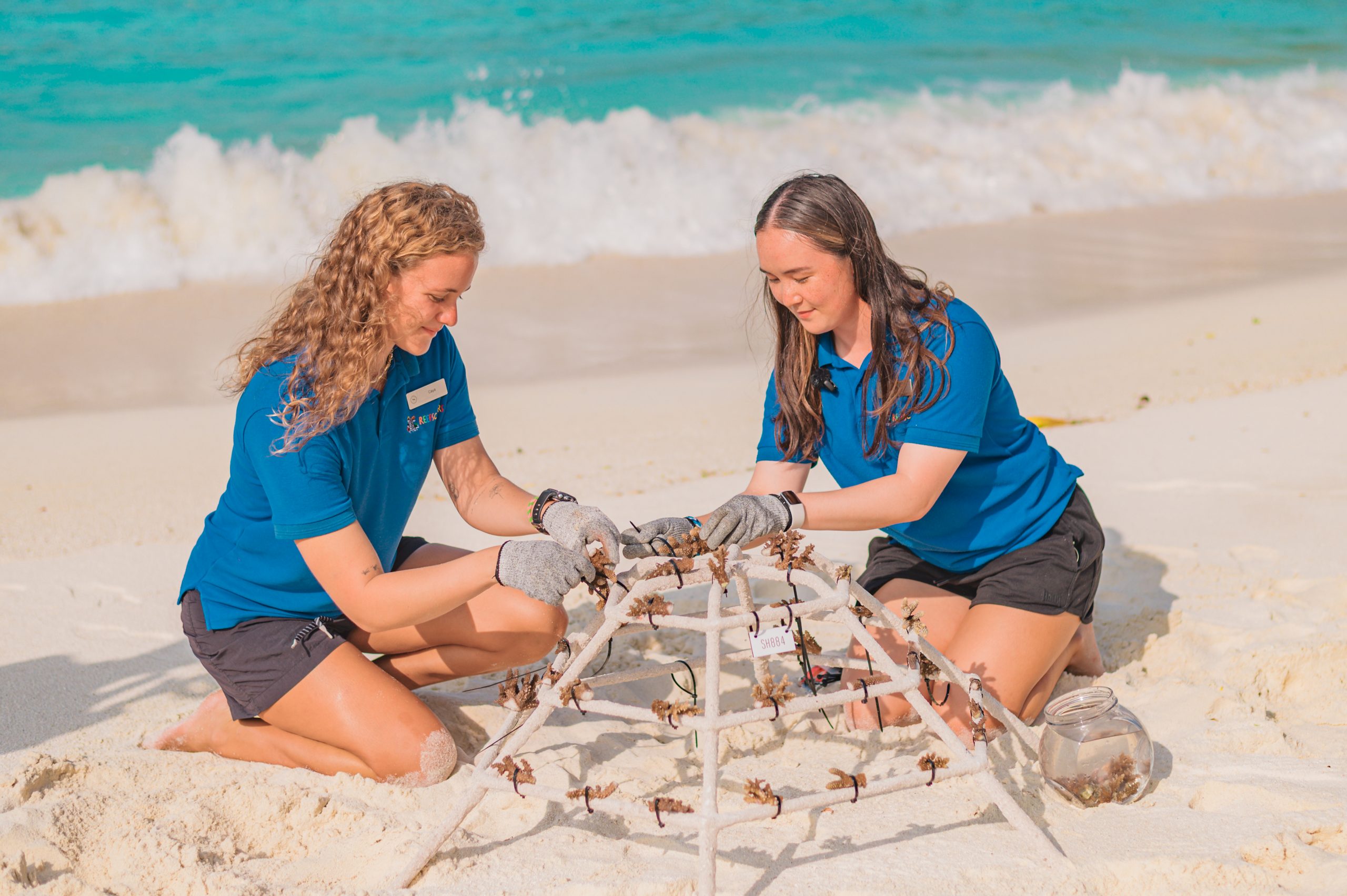
Sheraton Maldives Full Moon Resort & Spa marks the sixth anniversary of its partnership with Reefscapers on February 19, 2026, reaffirming its commitment to protecting and restoring the Maldives’ fragile reef ecosystems. Since launching the partnership in 2020, the resort and Reefscapers have worked together to restore coral habitats, support marine biodiversity, and engage guests in meaningful conservation experiences. The milestone also marks one year since the successful relocation of approximately five tons of coral to the resort’s house reefs — one of the partnership’s most significant conservation initiatives.
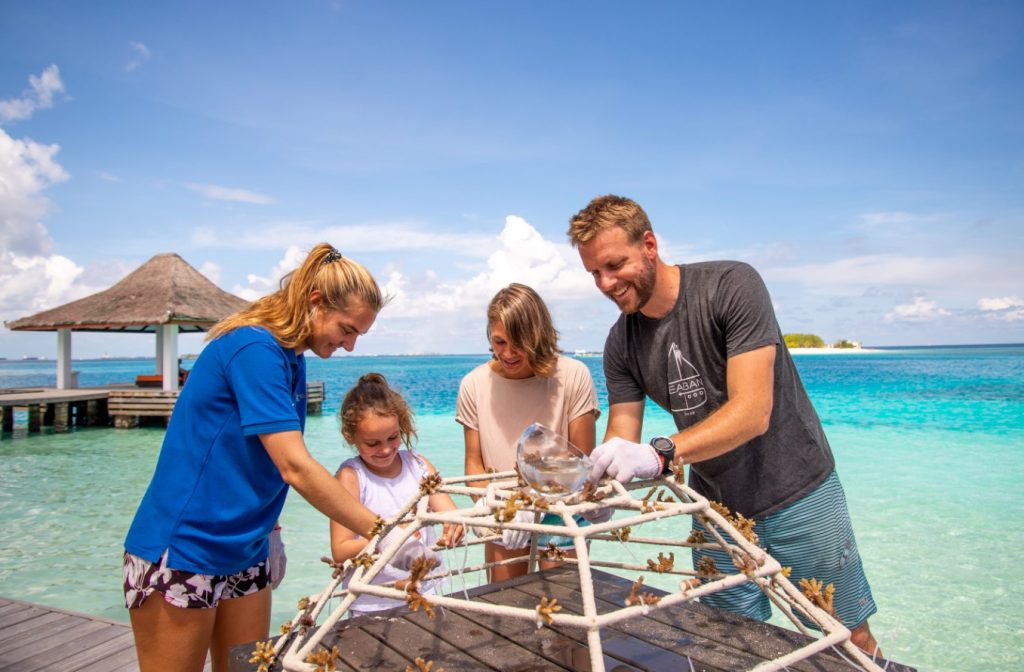
Over the past six years, the partnership has become a defining pillar of the resort’s sustainability journey, blending scientific restoration with purposeful guest engagement. To date, the initiative has resulted in the planting of 898 coral frames, supporting approximately 33,000 coral colonies now growing across the restoration sites. Through coral propagation, reef monitoring, and awareness programmes, these efforts continue to regenerate reef structures while deepening understanding of the essential role coral ecosystems play in sustaining marine life and protecting coastlines. Each thriving coral frame reflects a shared dedication to preserving the natural wonders that make the Maldives one of the world’s most extraordinary marine destinations.
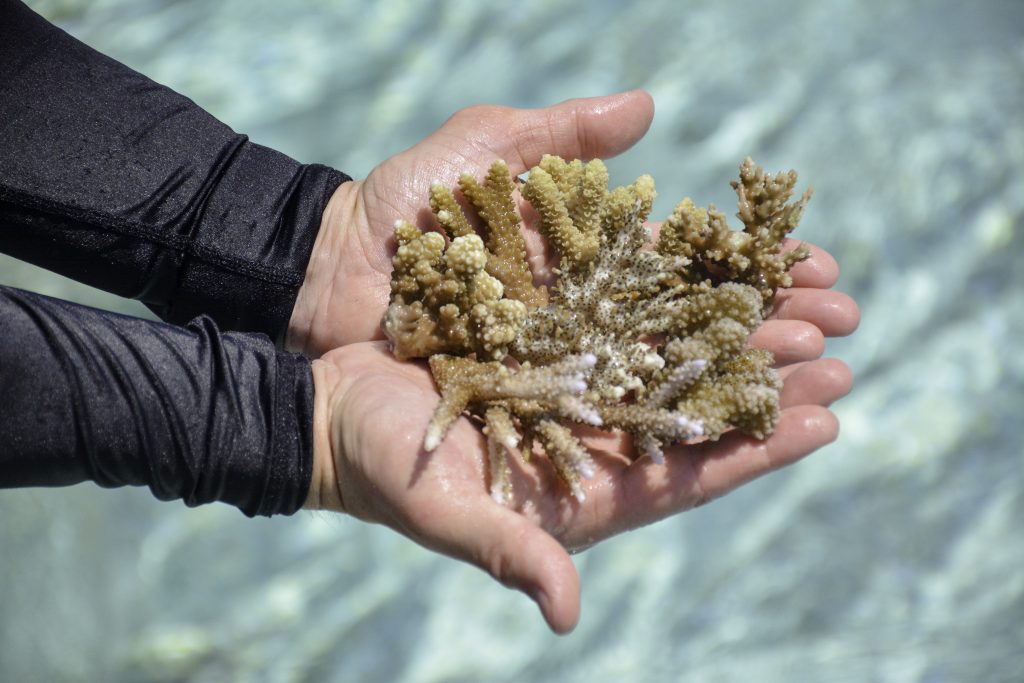
“What makes this partnership special is seeing how small, consistent actions turn into real change underwater. Watching the relocated corals settle, survive, and begin to grow over the past year has been incredibly rewarding for us and the guests who return and witness how they’ve helped restore a living reef,” shares Katelyn, the resort’s Marine Biologist.
A defining achievement of the collaboration has been the coral relocation project, which carefully transferred coral colonies from Ras Malé, also known as the Maldives Eco City, to the resort’s dedicated restoration site, safeguarding them from potential threats linked to land reclamation activities in the Fushi Dhiggaru Lagoon. One year on, these corals continue to flourish beneath the surface, strengthening reef resilience and contributing to the long-term health of the surrounding ecosystem.
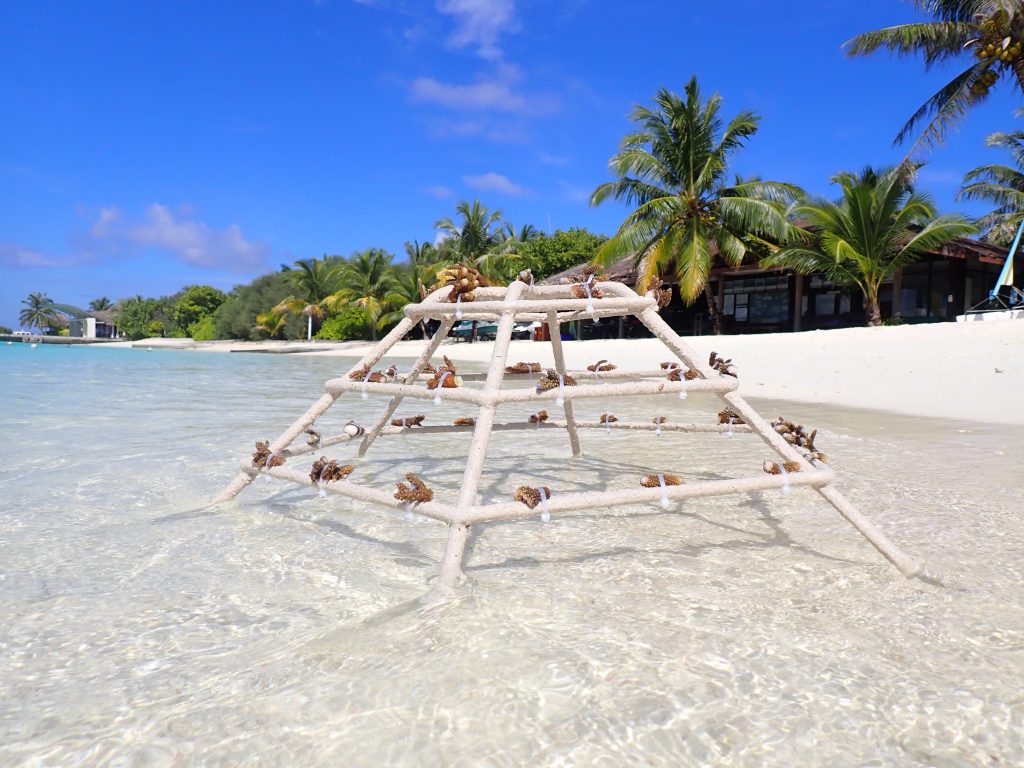
At the heart of the partnership lies the resort’s Adopt a Coral programme, part of the Good Travel with Marriott Bonvoy initiative, which encourages guests to travel with intention through meaningful environmental experiences. Through this hands-on activity, visitors can adopt and name a coral frame while learning directly from marine experts about coral ecology and the importance of protecting marine habitats.
To deepen this connection beyond the stay, guests receive growth updates on their adopted corals every six months, allowing them to follow the progress of their living contribution to the reef. As these corals grow over time, they become enduring symbols of renewal and shared responsibility, transforming a holiday memory into a lasting environmental legacy, and reflecting how travel can positively support local ecosystems and communities.
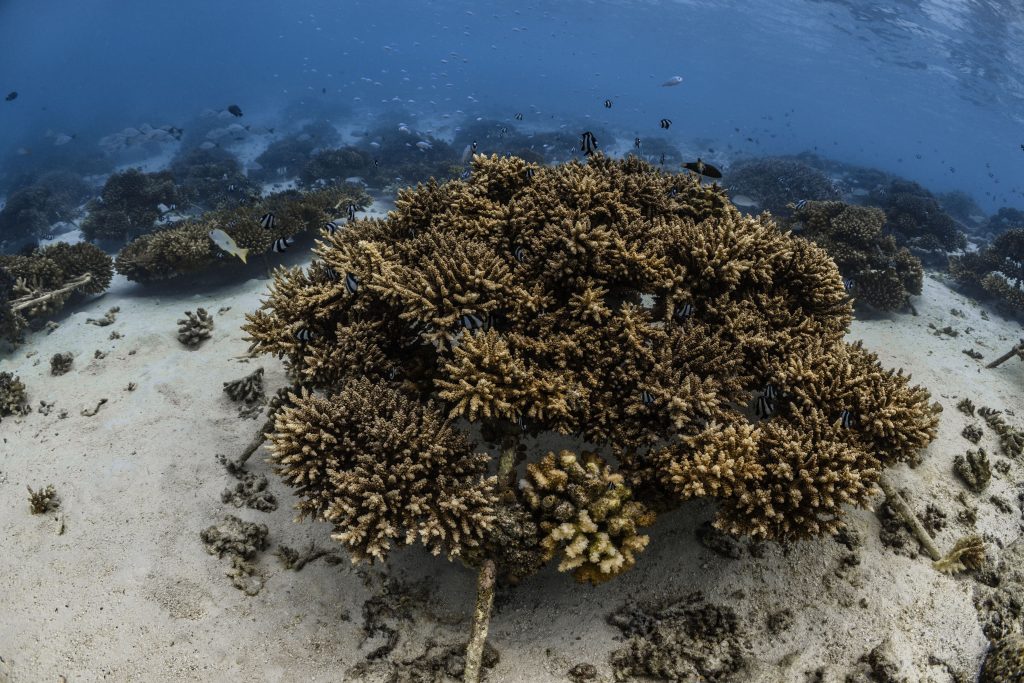
“Our island is surrounded by a remarkable marine environment, and protecting it is a responsibility we take seriously. Our partnership with Reefscapers reflects our belief that hospitality should go hand in hand with stewardship. Seeing the reef restoration progress over the past six years, and the involvement of our guests and associates in that journey, makes this anniversary especially meaningful for all of us,” comments Greg Allan, General Manager of Sheraton Maldives Full Moon Resort & Spa.
Through its continued collaboration with Reefscapers, Sheraton Maldives Full Moon Resort & Spa remains dedicated to advancing marine conservation while creating purposeful guest experiences rooted in sustainability, education, and connection to nature.
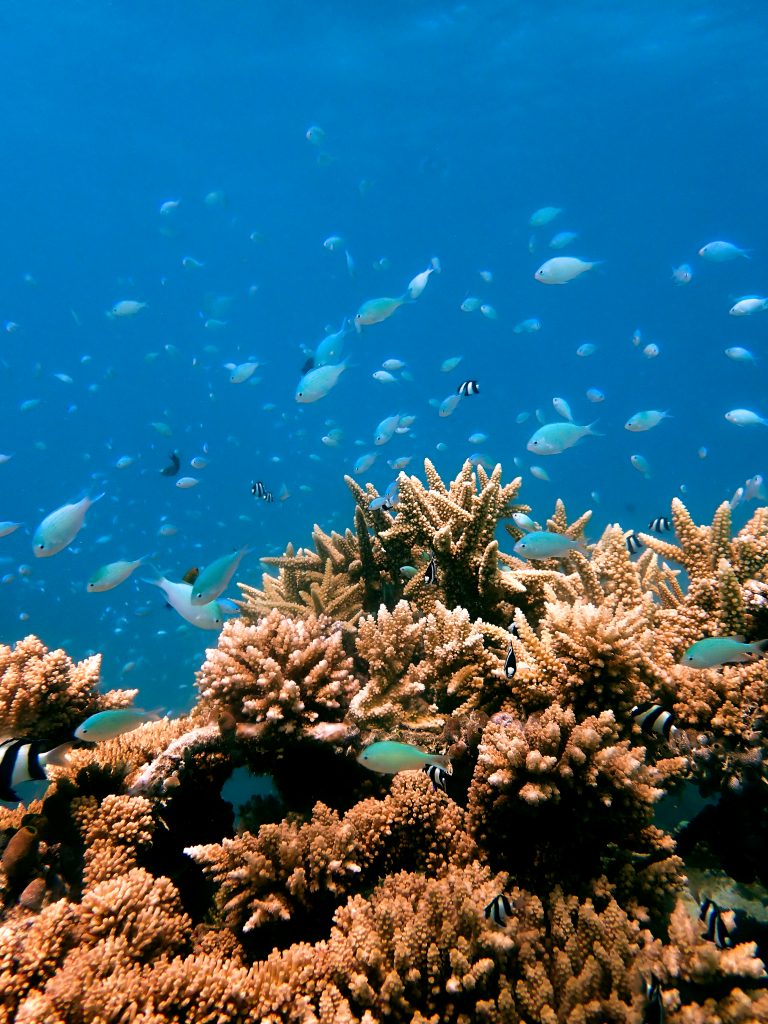
To discover more about the resort’s sustainability initiatives, join the Adopt a Coral programme, or plan a stay that supports reef conservation, visit sheratonmaldives.com or contact the reservations team at Sheraton.Maldives@sheraton.com.
Action
Sun Siyam Vilu Reef unveils expanded marine excursion portfolio

Sun Siyam Vilu Reef, part of the Sun Siyam Privé Collection, has introduced an expanded portfolio of water-based experiences designed to showcase the natural environment and marine life of the surrounding atolls. The enhanced programme combines exploration, activity and moments of calm, offering guests new ways to experience the Maldives through curated ocean journeys and personalised excursions.
Building on established activities such as Jet Car rides, SeaBob adventures and windsurfing, the resort has expanded its watersports offering to include private speedboat journeys and bespoke marine experiences. These additions are tailored for small groups seeking intimate and meaningful encounters with the ocean.
Available daily from the resort’s Watersports Centre, the new private speedboat excursions provide a personalised way to explore the hidden marine sites of Dhaalu Atoll. Designed for one to four guests, each journey offers flexibility and individual attention. Guests may choose from four-hour, five-hour or full-day itineraries, all of which include a freshly prepared barbecue lunch. From coral gardens to secluded sandbanks, the excursions highlight the region’s diverse marine landscapes.
The programme’s centrepiece is the Full Day Adventure Trip, which offers an extended exploration of key marine locations. Highlights include the Coral Garden, known for its biodiversity and reef formations; Turtle Point, where sea turtles are frequently sighted; and Nurse Shark Point, which provides opportunities to observe nurse sharks in their natural environment. The experience concludes with a beachside lunch on a private sandbank, set against uninterrupted views of the Indian Ocean.
For guests seeking a balance between activity and relaxation, the Waves of Adventure and Calmness experience combines a private two-hour snorkelling safari or Jet Ski safari with a full-body massage at the resort. The programme is designed to transition smoothly from ocean exploration to restorative island time, reflecting the relaxed pace that characterises Sun Siyam Vilu Reef.
As part of the Sun Siyam Privé Collection, Sun Siyam Vilu Reef continues to focus on personalised service and experiences rooted in the natural setting of the Maldives. Through its expanded watersports offering, the resort invites guests to engage with the marine environment while enjoying a sense of privacy, discovery and connection to the Maldivian seascape.
-
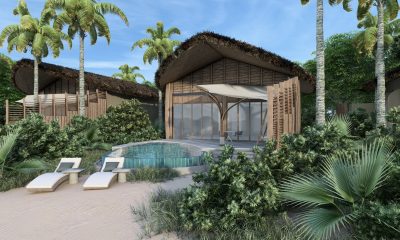
 News1 week ago
News1 week agoPulse Hotels & Resorts unveils Aura Maldives, a mindful luxury sanctuary
-
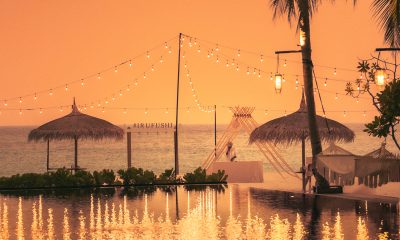
 News1 week ago
News1 week agoSun Siyam Iru Fushi sets new nenchmark with 24 Hour Premium All Inclusive Dine Around
-
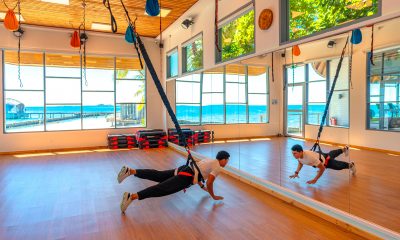
 Fitness1 week ago
Fitness1 week agoOUTRIGGER Maldives Maafushivaru launches expanded wellness programming for 2026
-
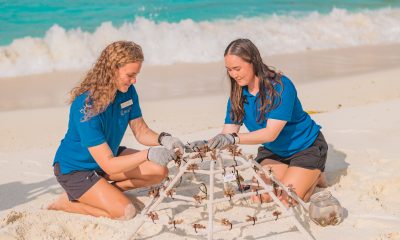
 Action1 week ago
Action1 week agoSheraton Maldives Full Moon celebrates sixth anniversary of Reefscapers collaboration
-
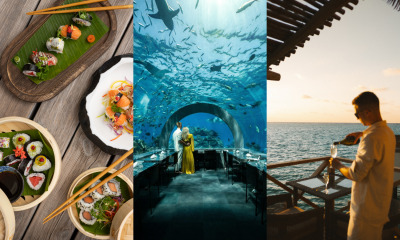
 Featured1 week ago
Featured1 week agoYou & Me Maldives unveils curated Premium All Inclusive programme
-
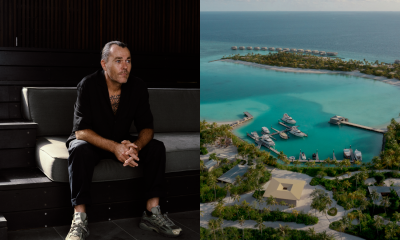
 Cooking1 week ago
Cooking1 week agoPatina Maldives hosts Chef Shannon Bennett for exclusive April residency
-
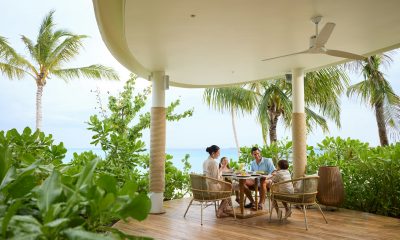
 Awards1 week ago
Awards1 week agoCentara Mirage Lagoon Maldives named Luxury Family Friendly Resort of the Year
-
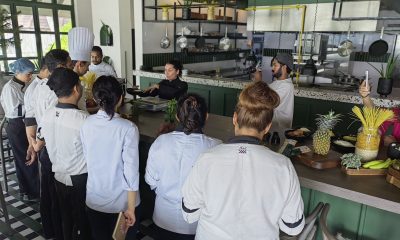
 Cooking1 week ago
Cooking1 week agoSun Siyam Olhuveli hosts Italian Chef Francesca Gambacorta at Milano restaurant



